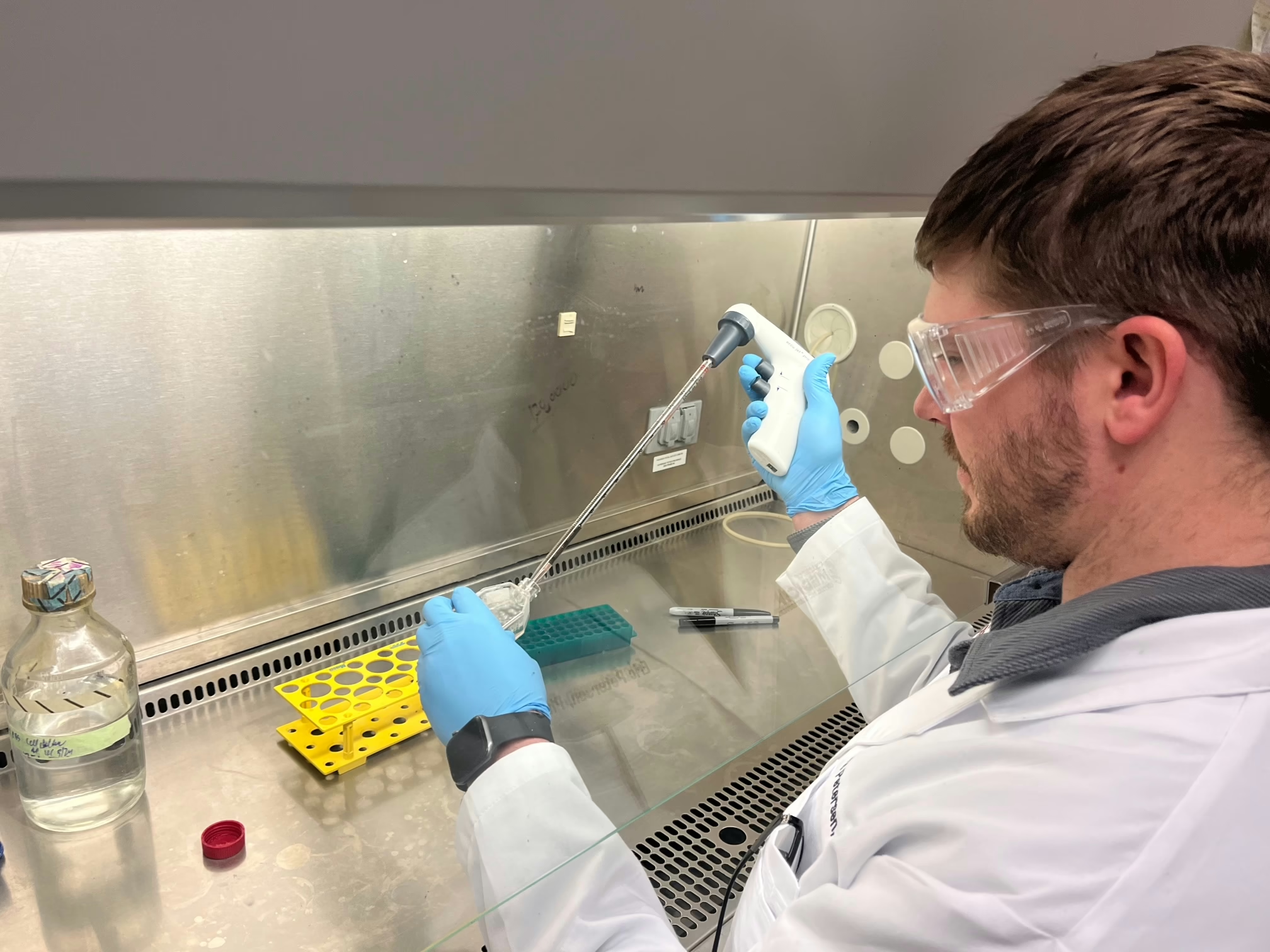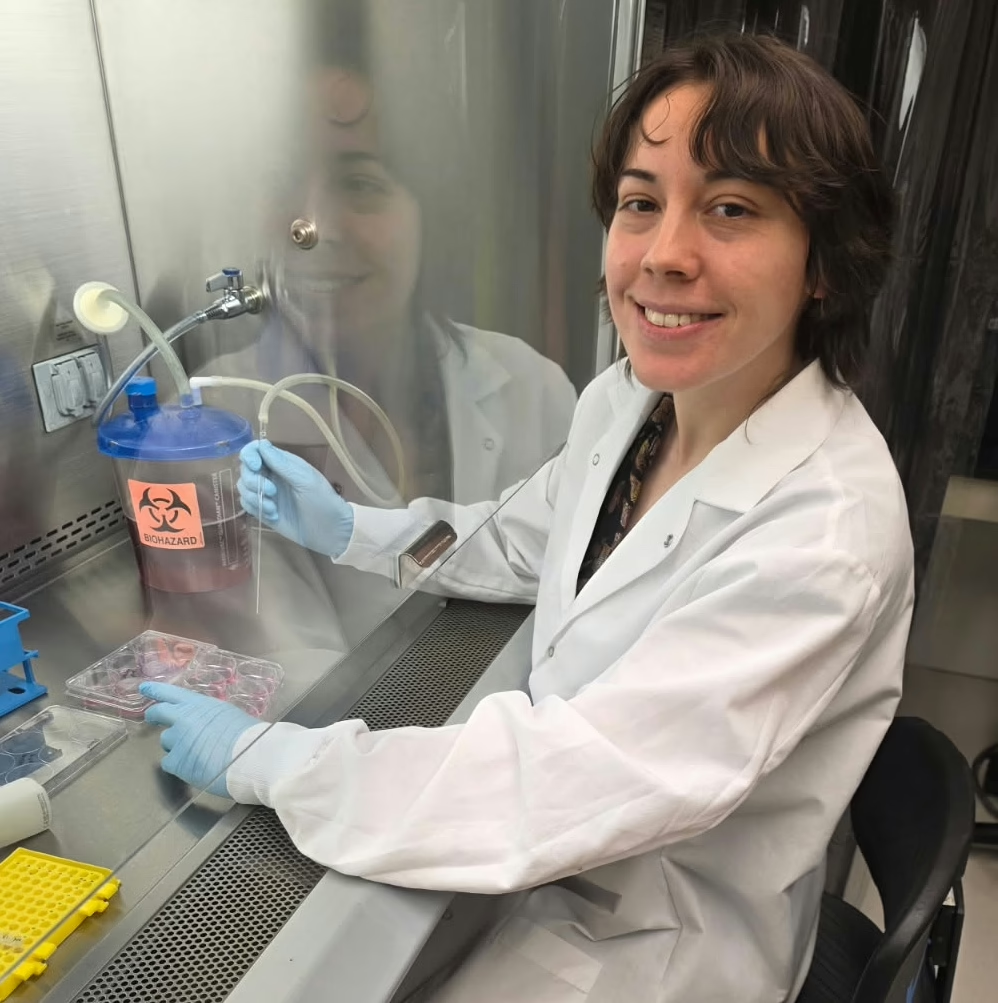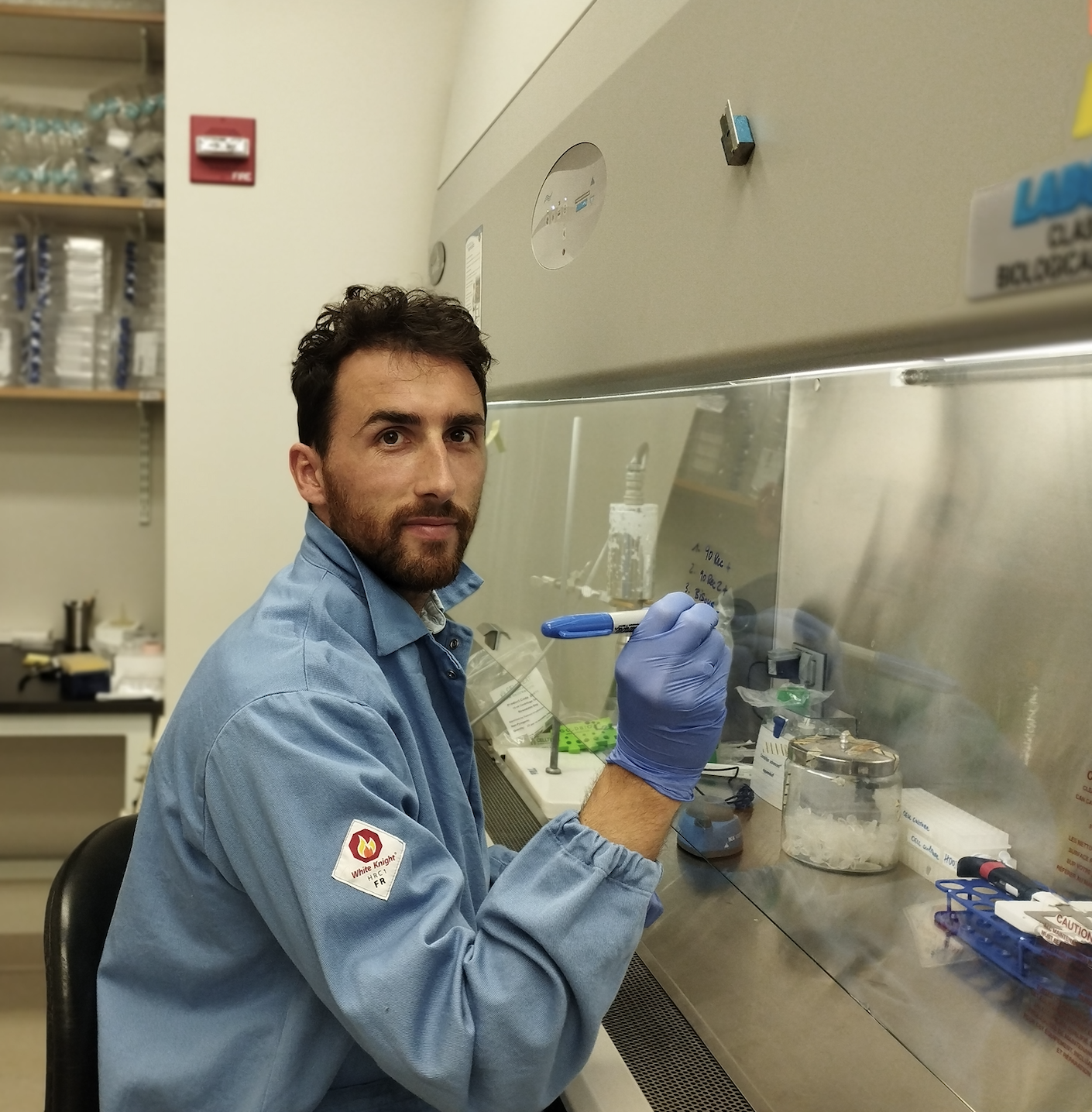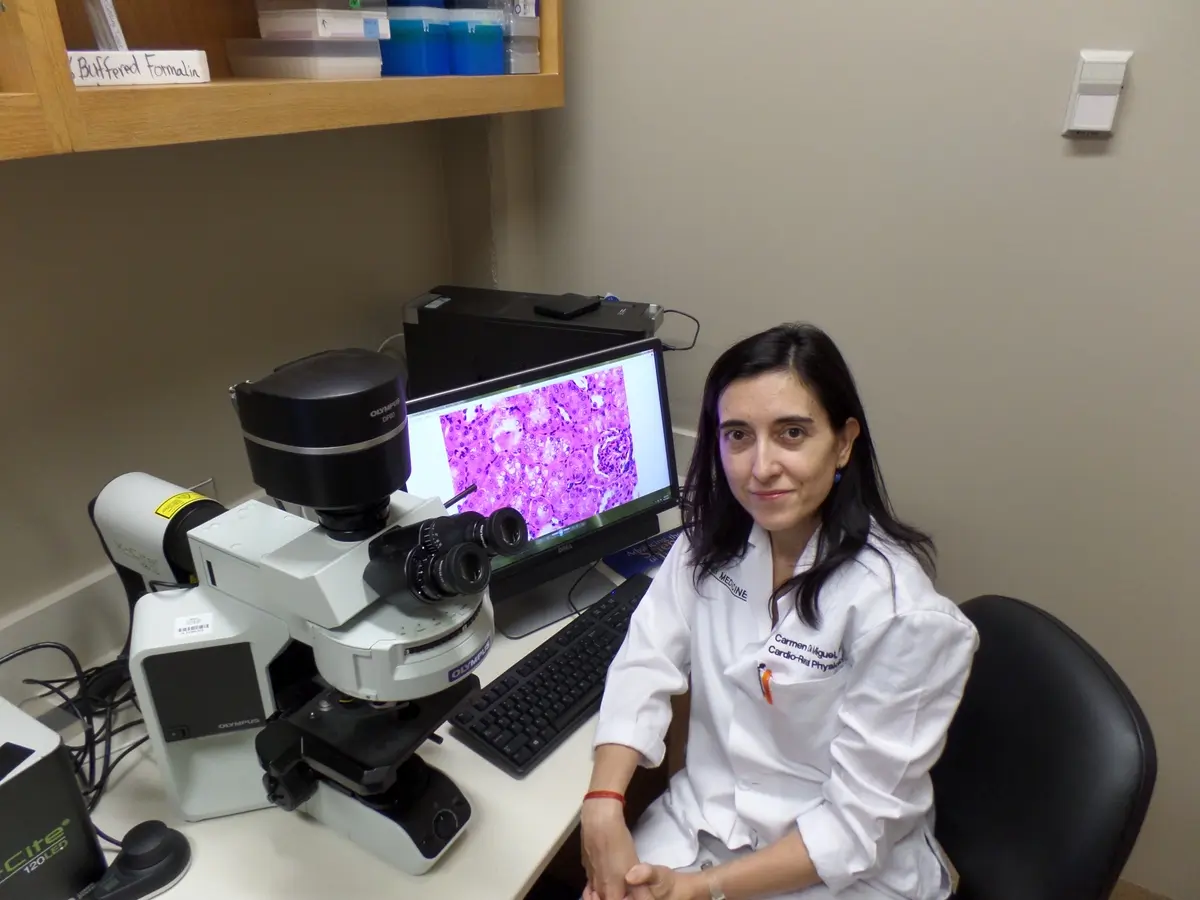6 Month Update
The primary objective of this DRC-funded project is to investigate the role of PD-L1 molecules in beta cells under stress conditions, hypothesizing that they may increase to protect against immune cell attacks. Our research focuses on how cytokines influence gene expression in beta cells through alternative splicing, akin to rearranging “puzzle pieces” to produce different protein versions, such as PD-L1. This process potentially alters the immune response and the interaction between beta cells and immune cells. In preliminary experiments, we quantified the relationships of alternatively spliced intracellular PD-L1 in human β cells and islets. EndoC-βH1 cells and human islets were treated with 2000 U/mL human IFN-α for 24 hours. Using TaqMan PD-L1 primers, we successfully identified both the canonical form of PD-L1 (CD274 isoform a) and an alternatively spliced isoform that lacks exon 3 (CD274 isoform b, referred to as PD-L1Δ3). In our experiments, IFN-treated cells and islets showed a significant increase in the mRNA levels of the canonical PD-L1 isoform. Interestingly, we also observed a variable increase in PD-L1Δ3 expression following IFN treatment, suggesting a potential trend toward upregulation.
We are currently expanding our research to further investigate how these alternatively spliced forms of PD-L1 respond to IFN treatment. Our goal is to determine their correlation with individual genetic or phenotypic characteristics. Additionally, we aim to elucidate the biological significance of the alternatively spliced PD-L1 form, particularly its capacity to bind PD-1, its intracellular expression patterns, and its potential transport within extracellular vesicles (EVs). Understanding these aspects could provide insights into the regulatory mechanisms of immune responses in beta cells under stress conditions.
In parallel, we analyzed total EV PD-L1 levels from previously banked plasma samples from 16 islet autoantibody-positive (AAB+) non-diabetic individuals and 20 AAB− non-diabetic controls to determine whether circulating levels would vary before the onset of type 1 diabetes. Our findings revealed elevated EV PD-L1 levels in AAB+ individuals compared to AAB− individuals. Stratification based on the number of islet autoantibodies showed that those with a single islet autoantibody exhibited higher plasma EV PD-L1 levels. Moreover, a positive correlation was observed between plasma EV PD-L1 and circulating C-peptide levels (r=0.5202; p=0.0389) in individuals predisposed to type 1 diabetes, suggesting a link between EV PD-L1 and residual beta cell function. This relationship was absent in the control group. We are now testing the level of PD-L1 variants in circulation. With support from DRC, we have made significant progress in understanding how heterogeneous circulating PD-L1 correlates with individual characteristics, potentially identifying early markers or mechanisms associated with T1D progression.
Project Description
Type 1 Diabetes (T1D) is an autoimmune disease where the body’s own immune system attacks and destroys the insulin-producing beta cells in the pancreas. This leads to a cascade of disruptions in the body, making it difficult to regulate blood sugar levels.
The goal of this research project is to better understand the early stages of T1D development by exploring the role of extracellular vesicles (EVs) – small membrane-bound particles released by cells, including the pancreatic beta cells. These EVs carry important molecules that can provide insights into the health and status of the beta cells, and they make their way into the bloodstream where they can be detected and analyzed.
Specifically, we are interested in how the beta cells respond to inflammation, which is a key factor in the development of T1D. When under stress, the beta cells increase the production of a protein called programmed cell death-Ligand 1 (PD-L1), which helps regulate and mitigate the destruction of beta cells by the immune system. We want to understand how the beta cells package and release PD-L1 protein into EVs, and how this process may change as T1D progresses.
By analyzing the content and characteristics of these EVs released into the extracellular space and bloodstream, we hope to uncover valuable information about the state of the beta cells, potentially identifying early markers or mechanisms associated with the development of T1D. By delving deeper into the role of EV PD-L1 in the immune response in T1D, this study aims to establish EVs as potential blood-based biomarkers for the disease. Ultimately, this research could lead to the development of new interventions aimed at preventing the autoimmune destruction of beta cells in T1D.











